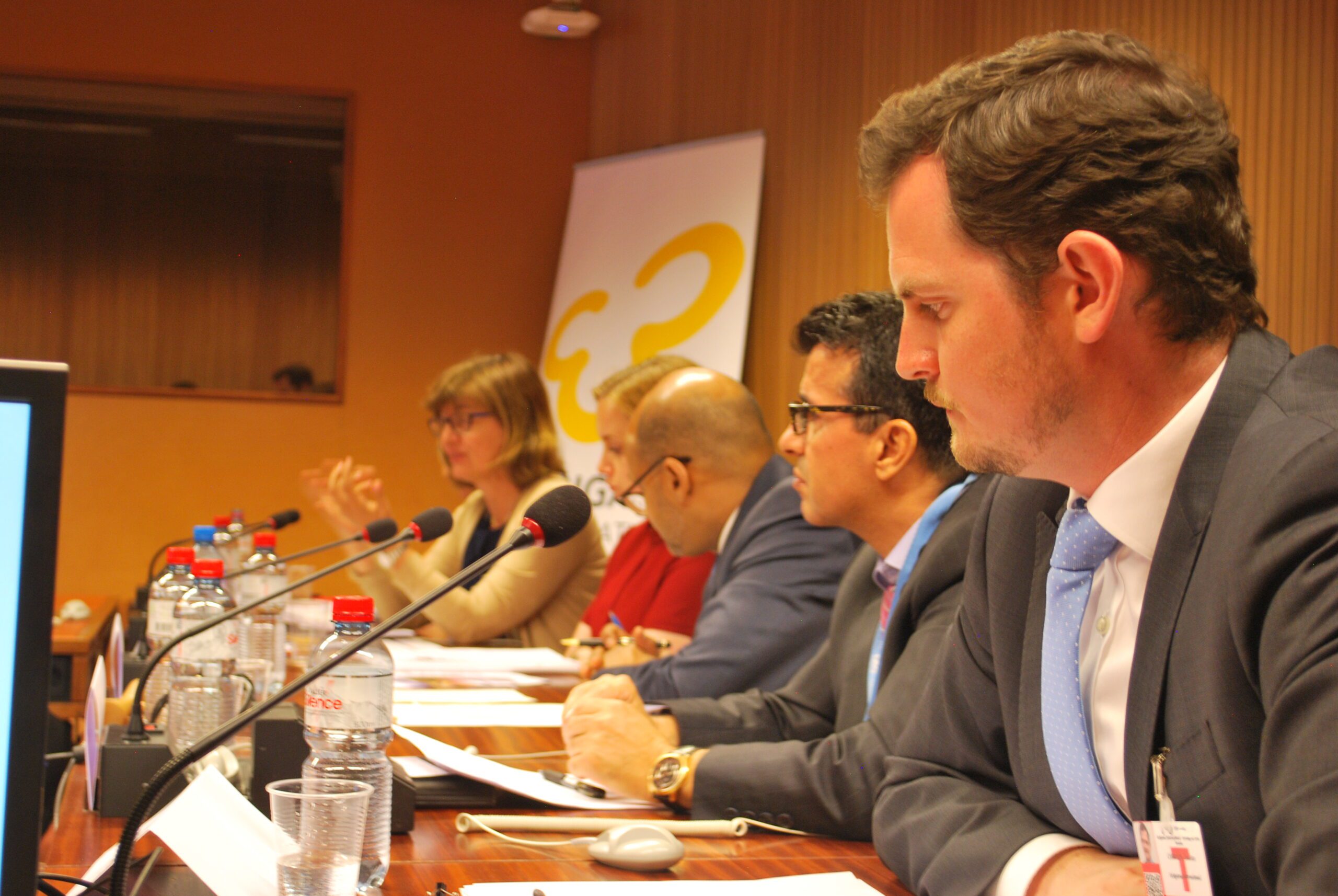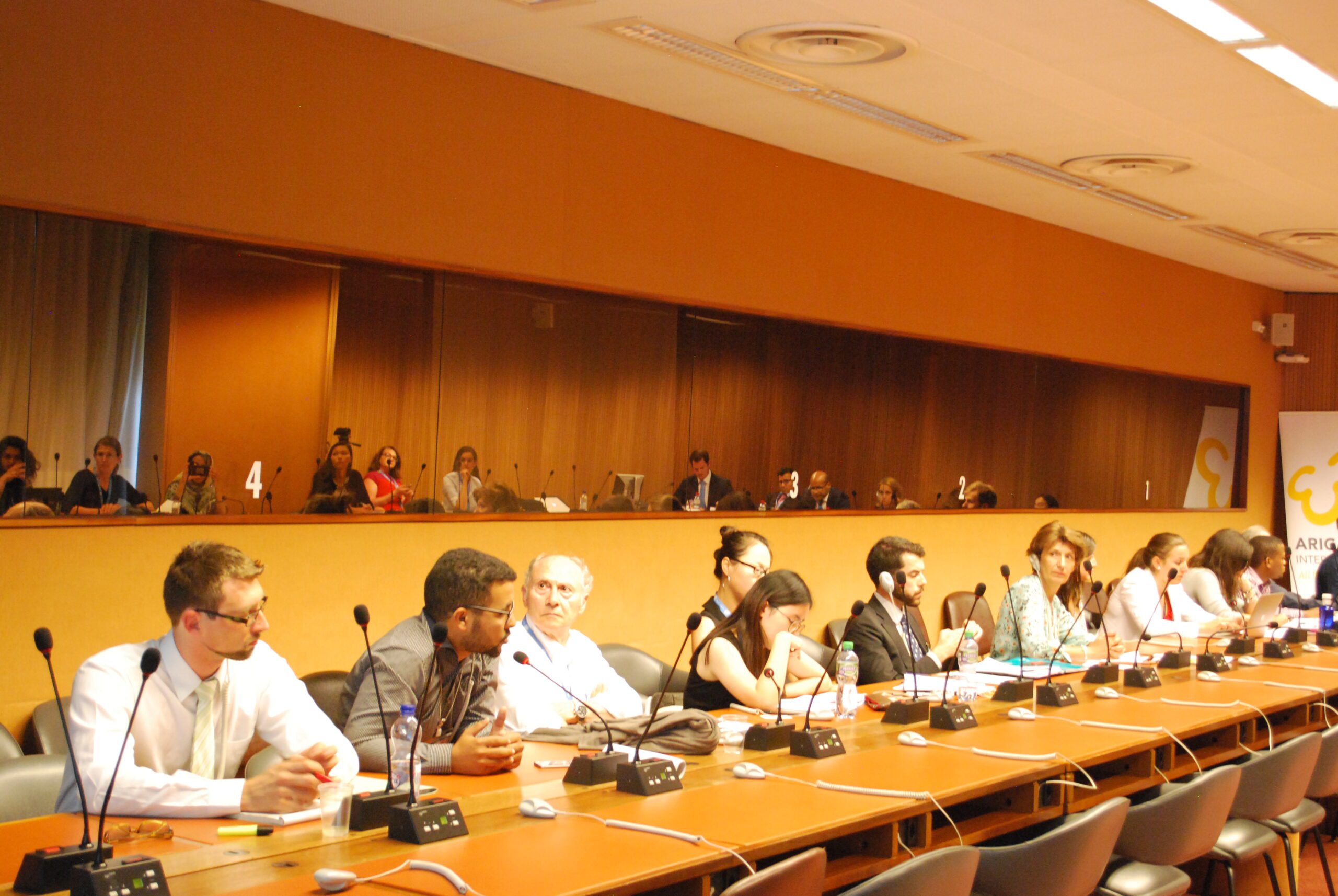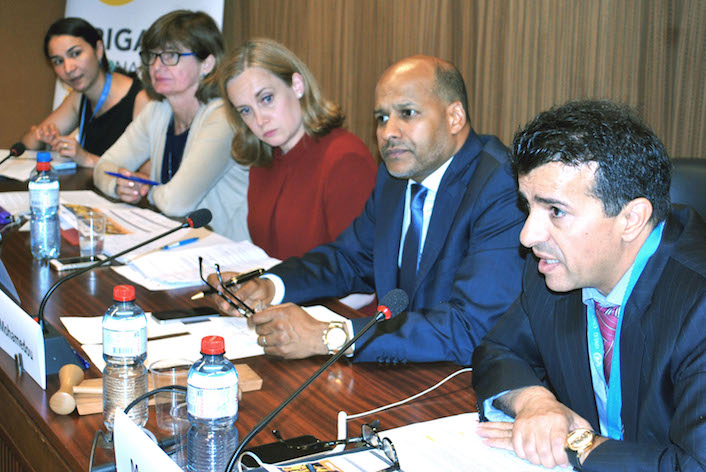
In its constant efforts to promote children and youth participation in topics that affect them, Arigatou International Geneva, in collaboration with the Permanent Mission of Morocco and the Permanent Mission of Sweden to the United Nations in Geneva, UNICEF, and the Kofi Annan Foundation organized an event titled: “Learning to Live Together: Enhancing Children and Youth Participation to Prevent Exclusion, Hatred and Violence”.
This event was held on 19 June, in the margins of the 35th Session of the Human Rights Council, bringing together representatives from UN permanent missions, civil society, and technical experts. It was organized as a follow up of Learning to Live Together: The Role of Education in Preventing Violent Extremism, a previous panel discussion that took place in September 2016.
The event aimed to share concrete policies, strategies, and programs to foster children’s and young people’s participation and global citizenship within their families, religious and local communities. In particular, the event looked into the role of children and youth in the prevention of the spread of ideologies that promote exclusion, hatred, and violence and promote the protection of human rights, within the framework of the 2030 Agenda for Sustainable Development.
The discussion was moderated by Professor Dr. Mohammad-Mahmoud Ould Mohamedou, Professor, International History, The Graduate Institute, Geneva. The panel included Mr. Hassane Boukili, Deputy Permanent Representative, Permanent Mission of the Kingdom of Morocco to the UN in Geneva; Dr. Jannie Lilja, Human Rights and OHCHR First Secretary, Permanent Mission of Sweden to the UN in Geneva; Mrs. Marilena Viviani, Director, UNICEF Geneva Liaison Office; Mrs. Maria Lucia Uribe, Director, Arigatou International Geneva; and Mr. Declan O’Brien, Project Coordinator, Kofi Annan Foundation.
Panelists examined cost-effective strategies that engage governments, families, faith groups and local communities to foster value-based education through a child-rights-based approach. They also explored how to make the most of the human rights mechanisms to support monitoring and accountability of processes enhancing the participation of children and young people.
 The discussion highlighted the need to develop strategic and tailored solutions that go beyond stigmatization and tackle the absence of youth participation and their resulting exclusion from decision-making instances and, consequently, from society.
The discussion highlighted the need to develop strategic and tailored solutions that go beyond stigmatization and tackle the absence of youth participation and their resulting exclusion from decision-making instances and, consequently, from society.
Dr. Mohamedou clustered the main recommendations discussed during the event, concluding that it is necessary to establish relevant spaces to give a meaningful voice to youth; anchor children and youth participation in national constitutional frameworks; establish national strategies for youth participation and national youth councils to develop concrete plans and opportunities to engage them in decision making processes; strengthen collaborations across all sectors including between government, private sector, religious communities, and civil society organizations focusing on youth; work together to strengthening quality education focused on nurturing critical thinking, empathy, and respect for diversity; continue to work together to develop more inclusive partnerships reaching out to various key actors from families to religious communities; and mainstream youth participation within the human rights mechanisms.
Arigatou International, together with the Permanent Missions of the Kingdom of Morocco and Sweden to the United Nations in Geneva, UNICEF and the Kofi Annan Foundation, are fully committed to continuing working on this topic, exploring concrete ways for partnerships and actions to move forward.
The report of this event is available HERE.
